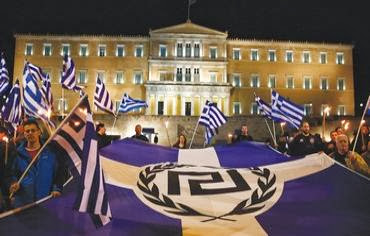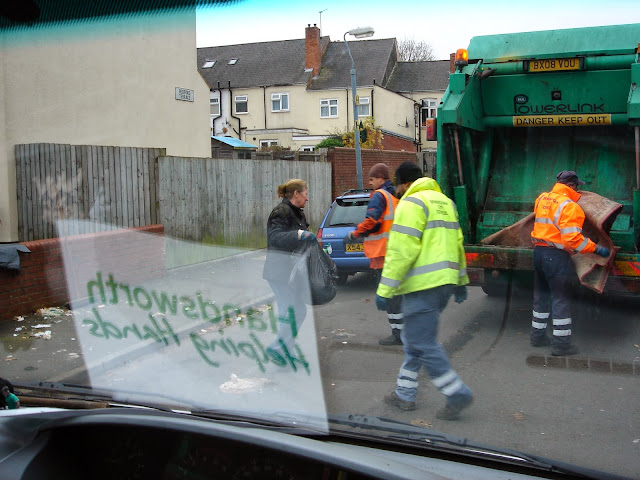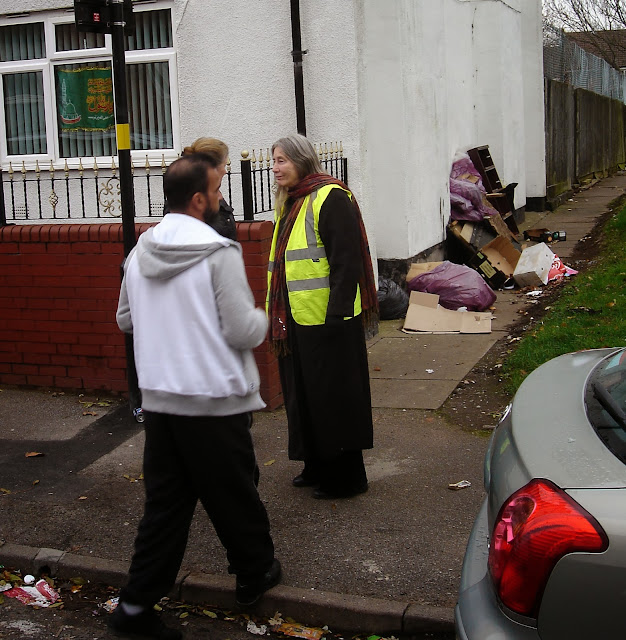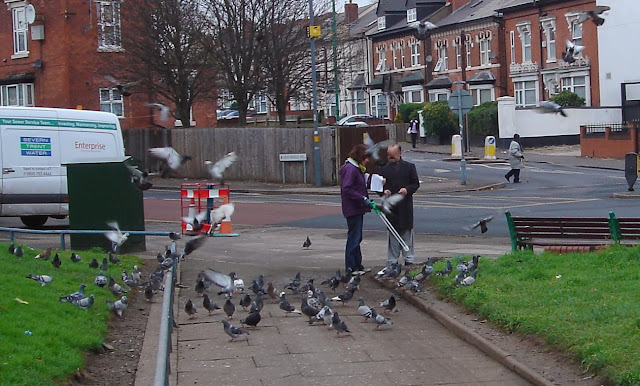 |
| Eggvolk and their party symbol in front of the Hellenic Parliament building |
Richard Pine loves Greece, lives in Corfu, and is someone whose friendship is a source of pride. His conversation is sparse, amusing, educated and to the point. This article, one of his regular 'Letters from Greece' to The Irish Times, chills me, piercing through my reflexive optimism about the capacity of Greek democracy and the Greeks to weather this relentless unending crisis. Now the experience of relative tranquillity looks more and more like that eerie peacefulness to be found in the eye of a storm. Comments on his article criticise Richard for lack of balance, for not providing evidence (in a short essay he actually refers to much evidence for his despondency) - but neither do those who comment, failing to offer any robust rebuttal of reflections based on Richard's acute knowledge and direct experience of Greece and its history as well as the sequence of events by which Weimar Germany, one of the most civilised states in Europe, popularly elected the demise of its own democracy…because these things are unthinkable they are not thought about, and for those who do not remember they are unimaginable…
'Many Greeks would prefer stability to democracy'
Under the present regime, the country as a whole is unsustainable
I would not be surprised or even shocked to see tanks rolling into Athens to signal the advent of a military junta. Apprehensive, but not surprised. It will almost certainly not reach that point, but citizen apathy at the poverty of political life, and despair at the continuing economic decline, are setting the scene for a potential takeover by forces including the military, police and far- right political parties such as the fascist Golden Dawn (GD).
A coalition of such forces would offer not only stability – a one-party state or even a no-party state – but no-nonsense determination to deal with the conditions of a country which sees no way forward under present dispensations.
A judicial investigator, attempting to assess the culpability of Golden Dawn MPs in relation to a recent murder and membership of what is in effect an illegal organisation, has stated that the party’s aim is “the dissolution of the democratic system of government”. That system has been abused by successive governments to such an extent that its suspension would be welcome to many disillusioned Greeks.
Meanwhile, the call by the union of reserve military personnel, for abolition of the government, repudiation of the bailout programme, the expulsion of illegal immigrants and the establishment of a government of national unity, chimes chillingly with GD’s policies.
A coup in 1967 led to a military junta for seven years. Greece became a police state. One of its leaders declared categorically, “whoever is interested in human rights in Greece is a communist”. So much for democracy. Its anti-democratic behaviour included disappearances and torturings, as reported in gruesome detail by this newspaper’s Peter Murtagh in his book The Rape of Greece.
But that was several years before Greece joined the EU in 1981. If it happened today, the EU would most likely expel Greece, which would certainly exit the euro zone, a step which would upset few Greeks. The bailout was (as the IMF admits) a mistaken panic measure to save the euro rather than saving Greece. Today, the people among whom I live don’t give a damn about the euro, and they look enviously at the likely end to the Irish bailout.
Today, the passivity of citizens, already exhausted by successive waves of austerity and degradation led by Brussels and Berlin, would reduce the likelihood of any meaningful opposition to military rule. Many Greeks, quite apart from the fascists, would agree that the prospect of stability and a dependable vision of the life to come is more important than democracy, and better than the life they currently lead.
It would, nevertheless, be a police state. It is widely believed that the police have been infiltrated by GD (this is under investigation), thus creating a strong ideology and a threatening presence on the streets. A police state would be Europhobe, xenophobic, and brutally harsh on its opponents.
A government spokesman recently said, “We have used up all the fat in the economy” – referring to Greece’s inability to reduce public finances any further to meet troika demands. With the fat has gone the elasticity and resilience of the man in the street in both financial and intellectual terms.
It is unrealistic and unfair to compare Greek statistics with the EU norm, even with the similar Irish financial mess. Unemployment, the banking crisis, tax evasion and corruption are specifically Greek problems. Under the present regime (or lack of it) the country as a whole is unsustainable – politically, economically, socially, culturally and morally. A hardline government could be achieved by the expulsion of the existing middle-of-the-road cosy coalition of New Democracy and Pasok, the so-called socialists. The chief alternative is a coalition of the left (Syriza), the possibility of which has increased the rightist vote.
Public opinion has moved slightly away from GD. Parliament has voted to remove immunity from nine of its 18 members, and suspend state financial support for GD as a political party. But current opinion polls still place GD with 7% of the national vote, down from 12% at its highest. This would still leave it with three more seats in parliament than it already holds.
And it is not only politicians who are decrying the status of Greece. At a London conference in mid-October speakers referred to the risk Greece runs of becoming “a failed state” unless it addresses “ineffective governance and lack of public confidence”. It was argued that “targeted constitutional correction and an internationally-sponsored programme of economic reform” is the only way to save Greece and the euro zone. Whether an attempted, failed coup would give the government a sufficient wake-up call is unlikely. Greece is a tragedy waiting to happen.
 |
| A relief by Aristeidis Metallinos, sculptor of Ano Korakiana |
Plato said "One of the penalties for refusing to participate in politics is that you end up being governed by your inferiors" - an elitist observation unless you subtract any implication of class and insert some gauge of the inclination to treat one's fellows with decency; as germane, the words of George Santayana, 'Those who cannot remember the past are condemned to repeat it'
 |
| My good wife with paint in Ano Korakiana |
...The question now is: Why has contemporary Greece seen a Nazi revival? Spaniards, the Irish, the Portuguese, the Italians have also felt the ill-effects of the Eurozone crisis in their bones. But why is it that only in Greece has a Nazi party, Golden Dawn, managed to enter parliament in large numbers, while its storm troopers are terrorizing the streets? Kapnias’ story offers useful clues. It throws light on the significance of the Nazis’ attempts to create a local SS-like body of marginalized men disaffected by the local bourgeoisie, by the Left, and living under a permanent cloud of collective disgrace brought on by a previous national humiliation....*** ***
On Tuesday Handsworth Helping Hands (HHH) had a good day's work in Wilson Road…
 |
| Filling the crusher truck in New Inns Road - HHH working in partnership with Council workers |
*** *** ***
On Wednesday afternoon Linda and I were at an awards lunch at Aston Villa Football Ground for people who've given 75 or a 100 blood or platelet donations…
It was enjoyable and I felt proud being officially thanked and having my photo taken and getting an entirely impractical glass trophy.
"You'll fall on that" said Lin "and need a blood donation"
Before lunch we were offered a tour of the Aston Villa stadium, getting a stroll, with spine-tingling sound effects, of coming out of the tunnel to the pitch…
 |
| In the tunnel at Aston Villa |
 |
| The Gift Relationship |
*Sisyphus Σίσυφος was a king in Corinth punished for chronic deceitfulness by being compelled to roll an immense boulder up a hill, only to watch it roll back down, and to repeat this action forever.










No comments:
Post a Comment